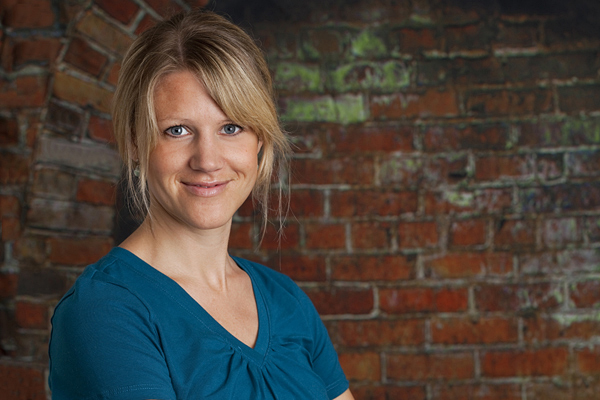
Computers as storytellers
Contextual learning research may help military in foreign regions
9:15 a.m., Oct. 12, 2011--Storytelling is a time-honored way of conveying information. Storytellers weave tales based on threads of information from previous experiences in order to inform, educate and expand the knowledge of others.
Kristina Winbladh, a professor at the University of Delaware, is putting a new twist on storytelling by developing a contextual learning system to train soldiers bound for foreign regions.
Research Stories
Chronic wounds
Prof. Heck's legacy
“Much of the noncombat work soldiers do abroad involves securing and maintaining peace in highly populated civilian areas, yet, while our soldiers have excellent combat training, they are equipped with little social training,” said Winbladh.
“In the military, misunderstandings can cost innocent lives,” she continued. “Storytelling is powerful because it puts information into context, something current military training scenarios lack.”
Winbladh’s work is funded through a 2011 Young Faculty Award from the Defense Advanced Research Projects Agency (DARPA), the research arm of the U.S. Department of Defense. The two-year grant, totaling $299,000, will support Winbladh and her research team in their effort to create both the system’s architectural structure and a collection of stories that seek to serve as background for soldiers to better understand and cope with events that fall outside their assigned tasks or training.
Part of the challenge for the research team is gathering details about the interactions soldiers have had and using that information to build a catalog of stories, which Winbladh calls the project’s “body of knowledge.” The project aims to use that “body of knowledge” to teach other soldiers about various cultures or regions and help them, and the people they interact with, remain safer in unfamiliar situations.
“In this case, it also has the potential to build up trust between soldiers on peacekeeping missions and the people they are trying to protect,” said Winbladh, who was one of 39 scientists nationwide selected for funding from a pool of over 400 applicants.
The system Winbladh and her team aim to develop is called iMuse (Interactive Mode-based Use-case and Storytelling Environment). It is intended be an interactive software system that would help storytellers input stories, and then translate those experiences to a format that can be processed by computer algorithms.
Experiments with different virtual reality engines, event-based simulators and information retrieval techniques are designed to enable the team to build enhanced system features into the program to better aid storytellers.
For example, an important goal of iMuse is to allow storytellers to formulate a story using predefined concepts and actions, and then ask questions to clarify and refine the story. Sequences of events that occur often would be tagged for reuse, creating a drag and drop menu of options new storytellers could use to quickly enter their data.
Once catalogued, new storytellers would have access to a case library of previous story models that they could use to plan and develop their own narratives. While designed with the military in mind, the software system is intended to have many possible uses.
“The format for the end user is deliberately undefined,” she said. “The point is that the information should be in a format that can be translated by a machine for use in many different contexts including software development, virtual reality scenarios, game engines and business applications.”
About Kristina Winbladh
Kristina Winbladh joined UD in 2010 as an assistant professor in electrical and computer engineering. Her background includes establishing a language for narrative requirements and an interface to manipulate and view narratives.
She chairs the College of Engineering’s master of science in software engineering (MSSE) program committee. The MSSE program is a new joint graduate degree offered by the departments of Electrical and Computer Engineering and Computer and Information Sciences.
About the DARPA Young Faculty Award
The DARPA Young Faculty Award program aims to identify and engage rising research stars in junior faculty positions at U.S. academic institutions and expose them to Department of Defense needs, as well as DARPA's program development process.
Article by Karen B. Roberts
Photo by Ambre Alexander








